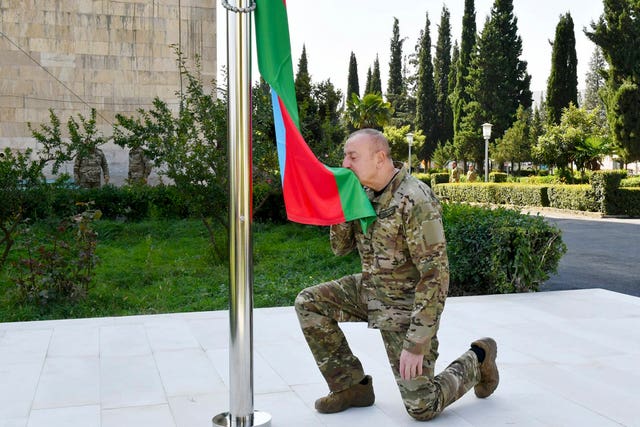Azerbaijan stages snap election expected to maintain president’s dominance
The vote on Sunday is not expected to bring significant changes to the Milli Mejlis parliament.

Azerbaijan is holding a snap parliamentary election that is the first for the country since it regained full control of a former breakaway territory in a lightning offensive last year.
Previous elections since independence from the Soviet Union have not been regarded as fully free or fair, and the vote for the Milli Mejlis parliament is not expected to bring significant changes to the body that is dominated by the New Azerbaijan party of President Ilham Aliyev.
Under the constitution, the election would have been held in November, but Mr Aliyev decreed it to take place two months early because the capital of Baku will host the UN climate conference Cop29 that same month.
Mr Aliyev’s father Heydar ruled Azerbaijan from 1993 until he died in 2003, then Ilham took over. Both have led the country with their heavy-handed rule, suppressing dissent as the country of almost 10 million people on the shores of the Caspian Sea basked in growing wealth from its huge oil and natural gas reserves.

New Azerbaijan holds 69 of the 125 seats in the parliament, and most of the rest belong to small pro-government parties or independents.
The Musavat party, the major opposition formation, put forth 34 candidates for Sunday’s election but only 25 of them were registered. The Republican Alternative opposition party will run 12 candidates.
The election comes just short of a year after Azerbaijani forces routed the remains of the self-declared government in the Karabakh region, which since 1994 had been under the control of ethnic Armenian forces backed by Armenia. Most of the region’s 120,000 Armenian residents fled the region in the face of the offensive.
The national election commission says 50 organisations will conduct observer missions. The largest observer contingent, from the Organisation for Security and Co-operation in Europe, is scheduled to present its preliminary assessment of the election on Monday.





